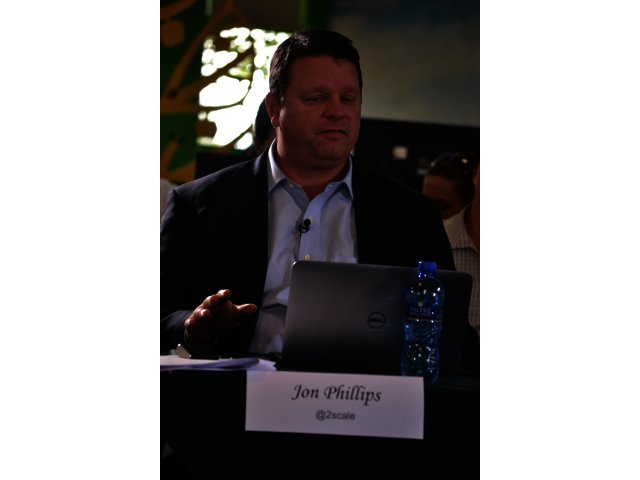In conjunction with a Think Tank discussing technology in education and classrooms of the future at Brescia House School today, Dell today announced that it will expand its solar-powered Learning Labs across South Africa. This includes new sites in Cape Town, Johannesburg and Sedibeng that will be operational by March 2015. The expansion follows a successful pilot in 2013, and Dell will now have nine labs providing direct technology access to more than 3,000 underprivileged students in communities where technology infrastructure is limited.
There are 72 million children worldwide who are not in school and lack access to facilities, teachers and the technology they need for a better education. Dell believes that access to education and technology is not a luxury, but a necessity.
“There are 72 million children worldwide who are not in school and lack access to facilities, teachers and the technology they need for a better education,” said Michael Collins, vice president and general manager of EMEA Emerging Markets, Dell. “Technology plays such an important role in the world today and it’s critical for all young people to firstly have access to technology and secondly to gain practical experience and know-how. Ultimately Dell is committed to breaking down the barriers of IT literacy and we believe access to education and technology is not a luxury, but a necessity.”
The Dell solar-powered Learning Labs are comprised of a standard shipping container that is converted into a computer classroom, and because access to electricity is a big barrier in Africa, Dell has designed the labs to harness the power from the sun to power the technology and internet connectivity for these students.
Each lab contains one server with Microsoft Multipoint Server and/or VWorkspace, used by the teacher, and networks to the 10 zero or thin-client workstations lining the sides of the container. All users are then able to access a local internet service, which is paid for by Dell. The setup is also highly efficient, with each workstation requiring just 3 – 5 watts of power, as opposed to 150 watts for a typical PC.
Dell has also made several improvements to the design of the labs, based on learnings from the pilot. The labs now have increased computing power in order to further enable children in STEM (Science, Technology, Engineering and Mathematics) subjects including coding and graphics works. The new labs have been built with fresh air-cooled servers, a better solution for hotter climates, and Dell has also brought in a new partner, Sunpower, to provide solar power for eight of the labs.
Dell solar-powered Learning Labs are made possible by Dell’s Youth Learning program, which seeks to close the learning gap by partnering directly with non-profits to provide innovative technology solutions, charitable donations and expertise to address challenges faced by underserved youth around the world where Dell operates. The labs are located in Cape Town, Johannesburg and Sedibeng and will be operational by the end of March 2015. Dell global Youth Learning projects include China, India, Morocco and the Philippines.
“We are delighted to be enabling these important conversations with top education leaders in South Africa today and are excited to discuss actionable ideas to improve key challenges in education technology in the area. Dell Learning Labs have afforded thousands of school students and community youth the opportunity to develop 21st century skills through enriching, technology-based learning,” said Jon Phillips, managing director, worldwide education, Dell. “At Dell we are proud to be involved in such significant projects and conversations and look forward to bringing access to more students around the world.”





